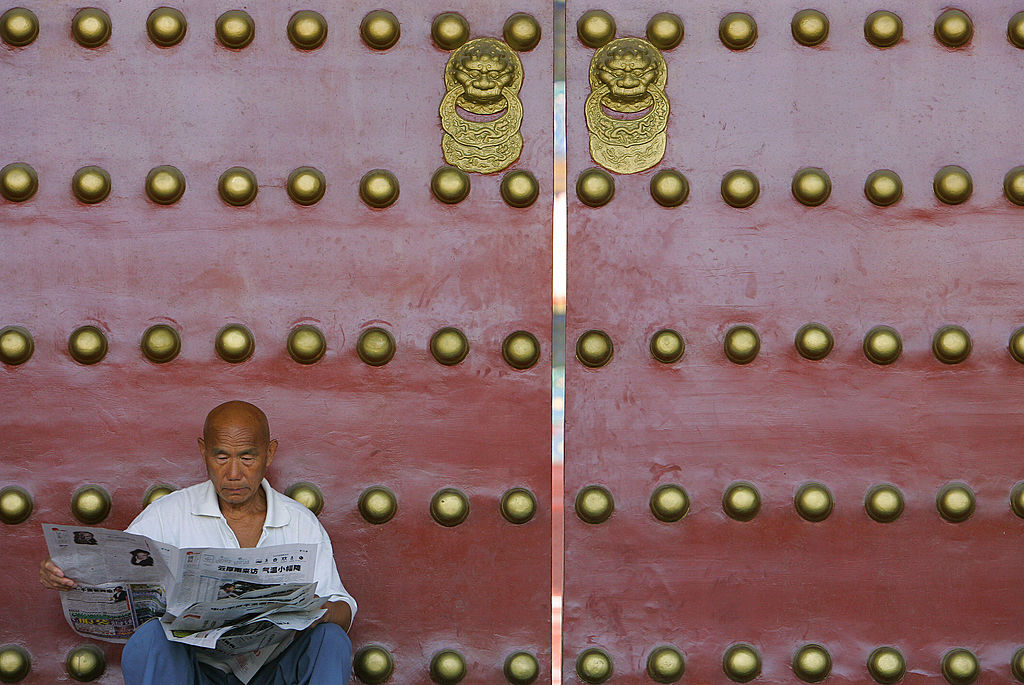The great Covid stonewall of China

Covid-19 has now been with us for more than a year and a half. It has stopped societies in their tracks, triggered sharp economic downturns, and killed more than 4.2 million people. But we still don’t know where the deadly virus came from, for a simple reason: China doesn’t want us to know.
China first reported that a novel coronavirus had emerged in Wuhan weeks after its initial detection. That shouldn’t be a surprise. The ruling Chinese Communist Party prefers to suppress information that might cast it in an unflattering light, and the emergence of Covid-19 within the country’s borders undoubtedly fits this description. In fact, the Chinese authorities went so far as to detain whistleblowers for ‘spreading rumours’.
By the time China told the world about Covid-19, it was far too late to contain the virus. Yet, the CCP hasn’t learned its lesson. Understanding whether the coronavirus emerged naturally in wildlife or was leaked from a lab is essential to forestall another pandemic. But the CCP has been doing everything in its power to prevent an independent forensic investigation into the matter.
The CCP did allow one ‘investigation’: a ‘joint study’ with the World Health Organization that China steered. But when WHO Director-General Tedros Adhanom Ghebreyesus recently proposed a second phase of studies—centered on audits of Chinese markets and laboratories, especially the Wuhan Institute of Virology (WIV)—China baulked. And when President Joe Biden announced a new US intelligence inquiry into the origins of Covid-19, China’s leaders condemned America’s ‘politicization of origins tracing.’
Without China’s cooperation, determining Covid-19’s origins will be virtually impossible. We know that the WIV has a published record of genetically engineering coronaviruses, some of which were similar to SARS-CoV-2 (the virus that causes Covid-19), and that it has collaborated with the Chinese military on secret projects since at least 2017. This information was included in a US State Department report released in the final days of President Donald Trump’s administration.
But proving that Covid-19 was leaked from the WIV—or that it wasn’t—would require US intelligence agencies to gain access to more data from the early days of the Wuhan outbreak, and the CCP is not giving that up. Nor does US intelligence currently have the kind of spy network in China it would need to circumvent the official blockade. (China took care of that a decade ago by identifying and eliminating CIA informants.)
In any case, China has by now had plenty of time to get rid of any evidence of its negligence or complicity. For this, they can thank the major US news organisations, social-media giants and influential scientists (some of whom hid their conflicts of interest) who have spent most of the pandemic likening the lab-leak hypothesis to a baseless conspiracy theory.
This stance was often politically motivated. Trump directed far more of his attention towards pointing fingers at China than devising an effective pandemic response in the US. So, when he promoted the lab-leak theory, his opponents largely dismissed it as yet another Trumpian manipulation.
Even today, with Biden now regarding a lab leak as one of ‘two likely scenarios’, many Democrats resist the idea. Meanwhile, congressional Republicans accuse Democrats of helping China to cover up the virus’s origins. The GOP recently released its own report, which concludes that the WIV was working to modify coronaviruses to infect humans, and that Covid-19 was accidentally leaked months before China sounded the alarm.
If the Biden-ordered US intelligence report reaches a similar conclusion, it could push already fraught Sino-American relations to breaking point. That isn’t what the Biden administration wants, as evidenced by Deputy Secretary of State Wendy Sherman’s efforts, on her recent visit to China, to ‘set terms for responsible management of the US–China relationship’. With Biden and Chinese President Xi Jinping also considering meeting on the sidelines of the October G20 summit in Rome, it seems likely that, at the very least, the US intelligence inquiry will be extended beyond its 90-day deadline.
But reluctance to provoke China isn’t the only reason why the Biden administration might hesitate to follow through on its demands for transparency. US government agencies, from the National Institutes of Health to USAID, funded research on coronaviruses at the WIV from 2014 to 2020, via the US-based EcoHealth Alliance.
The details remain murky, and US officials have admitted to no wrongdoing. But accusations that the US funded so-called gain-of-function research—altering the genetic make-up of pathogens to enhance their virulence or infectiousness—have yet to be definitively quelled. On the contrary, according to a Vanity Fair investigation, ‘In one State Department meeting, officials seeking to demand transparency from the Chinese government … were explicitly told by colleagues not to explore the Wuhan Institute of Virology’s gain-of-function research, because it would bring unwelcome attention to US government funding of it.’
Even as circumstances conspire to keep the truth hidden, one question won’t go away: could it have been a coincidence that the globally disruptive pandemic originated in the same city where China is researching ways to increase the transmissivity of bat coronaviruses to human cells? As CIA Director William Burns has acknowledged, we may never know for sure. But we should have no illusions about what that means. In failing to conduct a proper investigation when the pandemic began, we may well have let the CCP get away with millions of deaths.